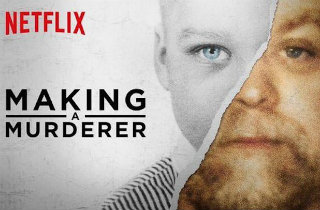 There’s a new twist in the case that served as the basis for Netflix’s “Making a Murderer,” one mysterious enough that it would fit in perfectly on the show. Kathleen Zellner, the post-conviction attorney trying to exonerate Steven Avery, has an impersonator, one who is trying to use her identity to request evidence from the case. The Green Bay Press-Gazette reports that Zellner learned of the imposter when she got a letter denying a public records request that she never made in the first place.
There’s a new twist in the case that served as the basis for Netflix’s “Making a Murderer,” one mysterious enough that it would fit in perfectly on the show. Kathleen Zellner, the post-conviction attorney trying to exonerate Steven Avery, has an impersonator, one who is trying to use her identity to request evidence from the case. The Green Bay Press-Gazette reports that Zellner learned of the imposter when she got a letter denying a public records request that she never made in the first place.
The faker sent a request listing the actual mailing address for Zellner’s firm as well as an email address that the genuine Zellner had never used before. Presumably, the pretender either didn’t specifically asked for the response to be sent digitally or the Wisconsin Department of Justice answers all requests via the United States Postal Service. The request had asked for “all documents filed or sent regarding the motion for DNA testing,” which the real Zellner already has.
In the letter sent by Wisconsin Assistant Attorney General Paul Ferguson rejecting the request, the reasons for the denial included the following:
- “First, your request is insufficient…”
- “I concluded that the strong public interest in not disclosing the requested records outweighs any public interest in disclosing the requested records at this time.”
- “DOJ has received reports of false information since the release of the Netflix series, ‘Making a Murderer.’ Prosecutors are concerned that people, influenced by new information, will come forward as witnesses while presenting false or fabricated information.”
- “Jurors in the Avery and Brendan Dassey cases have been subjected to badgering and harassment from some members of the public and feel fearful, anxious and nervous as a result. Release of information not already in the public record, or the trial record, could likely perpetuate the harassment.”
- “Several individuals involved in the Avery and Dassey cases have received threats, particularly following the release of the Netflix series. Former District Attorney Ken Kratz, the judge, key investigators and sheriffs have received threats.”
- A review of the case file by the original prosecutors and investigators would be necessary, and “[t]he estimated time for such a review is at least 40 hours per person with no guarantee that the records could be released.”
Zellner was frustrated that the Wisconsin DOJ went through all of this without verifying her identity or using common sense to realize she already had the records. Johnny Koremenbos, a Wisconsin DOJ spokesman, said that this was the first time that the agency knew of someone posing as someone else to request records from a high profile case, so it wouldn’t have been an immediate concern. Besides, “Public records are just that, public records,” he said. “Requests are generally fulfilled without consideration for who is making the request and that individual’s name.”